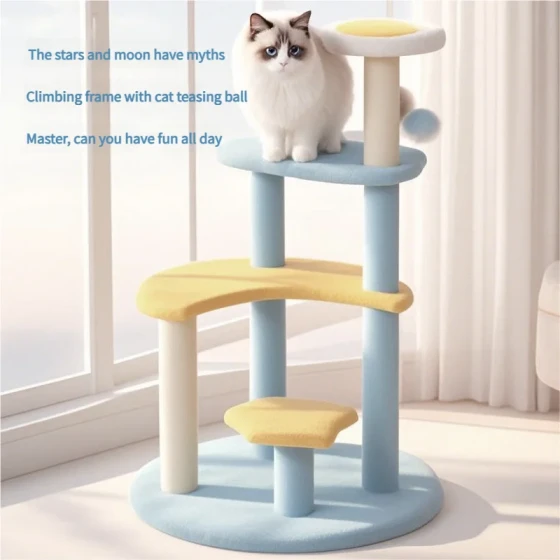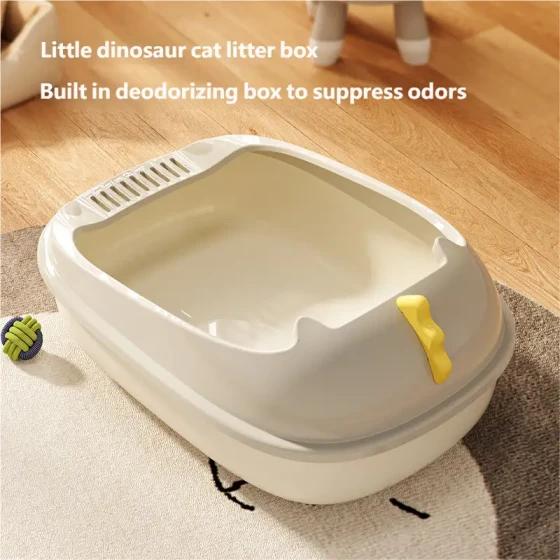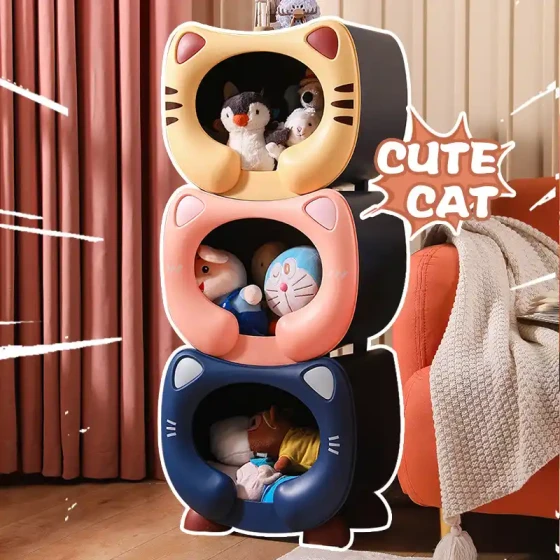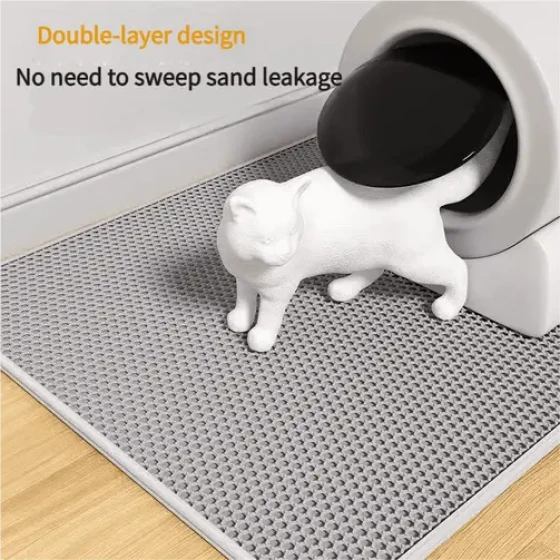Why Do Cats Eat Mice_ Revealing the Scientific Truth of Cats' Hunting Instinct
Why do cats eat mice? Many people might think that it’s only natural for cats to catch mice, just to fill their stomachs! It’s as simple as us eating when we are hungry. However, the truth is far more complex and interesting than you imagine. Cats catching mice is not merely about hunger; behind this lies profound scientific reasons. It results from their innate hunting instinct, physiological needs, and historical evolution working together. Understanding this might give you a deeper insight into the "meow beings" around you.
The Scientific Truth of Cats' Hunting Instinct
From a scientific perspective, why cats eat mice can mainly be explained from the following aspects:
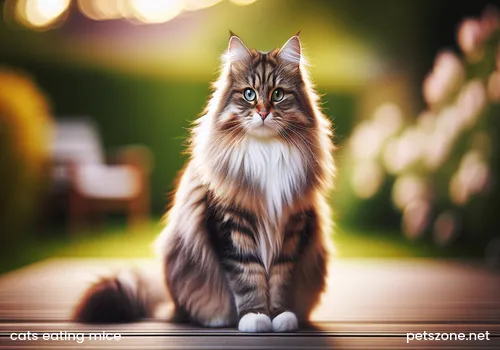
1. Deeply Rooted Genetic Hunting Nature
Felids are natural hunters. Regardless of size, from fierce tigers and lions to the domestic cats around us, they all possess exquisite hunting skills. This hunting instinct is a genetic imprint passed down through generations, deeply embedded in their behavioral patterns. Even pet cats living comfortably, well-fed and cared for, still retain this strong interest and desire to chase moving objects at their core. The fast movement of mice greatly stimulates the cat’s hunting impulse. This process of chasing and catching prey is not just for food but is an instinctive release and psychological satisfaction for cats, providing them joy. Just like humans enjoy video games or sports, cats also need to simulate hunting to fulfill their natural needs.
2. Taurine: An Essential for Cat Health
Cats are obligate carnivores, and their bodies require a very important substance from meat called taurine. Taurine benefits cats’ eyes, heart, brain, digestive system, and immunity, especially vital for vision. Cats cannot synthesize enough taurine on their own; a long-term deficiency will lead to vision decline and even night blindness. Mice happen to contain abundant taurine. In the past, particularly in food-scarce environments, capturing mice was an important way for cats to obtain taurine. Although nowadays most house cats receive sufficient taurine through high-quality cat food, in the absence of other meat sources, mice remain one of their choices for taurine supplementation.
3. Historical Evolution and Cooperation with Humans
The relationship between cats and humans dates back thousands, even tens of thousands, of years. Initially, humans tolerated and even welcomed these small felids largely because of their excellent mouse-catching abilities. In agricultural societies, mice posed a severe threat to grain stores, and cats’ natural hunting skills became an effective “weapon” against rodent infestations. Humans provided shelter and some protection for cats, and cats helped guard the granaries — this mutually beneficial relationship led to the domestication of cats. Although the role has changed in modern society, cats’ instinct to catch mice remains preserved.
4. Hunting Isn’t Always for Eating: Play and Training
Interestingly, many times cats won’t immediately eat the mice they catch but will “play” with them first. Although this behavior seems cruel, it is part of their hunting strategy. By repeatedly batting and chasing the prey, cats can exhaust the prey’s strength, reducing the risk of injury to themselves and honing their hunting skills. For kittens, this is an important learning process, through imitating the mother cat and practice, mastering hunting tricks. Some cats even bring caught mice back home to “offer” to their owners, considered a form of sharing prey, sometimes interpreted as teaching the owner to hunt or simply showing off their “trophy.”
Why Do Some House Cats Sometimes Not Eat Mice?
Since hunting mice is a cat’s instinct, why do some house cats ignore mice or even appear to peacefully coexist with them like Tom and Jerry in the cartoon?
There are several main reasons for this:
- Adequate Food Supply: Modern house cats generally live in worry-free environments where high-quality cat food meets most of their nutritional needs, including taurine. When not hungry, the drive to hunt comes more from instinct than physiological need.
- Instruction from Mother Cat: Hunting skills are largely learned from the mother cat. If kittens leave the mother cat early or if the mother cat herself is not good at hunting, the kittens may lack effective mouse-catching skills or interest in mice when grown.
- Individual Differences and Breeds: Like humans, each cat has different personality and preferences. Some are naturally passionate about hunting, others more “laid-back.” Different breeds may have varying strengths in hunting instinct; for example, some traditional local cats may retain stronger hunting abilities than purebred pets.
- “Prey” Size: Research shows cats tend to catch smaller mice, while larger rats, which may resist, are less interesting to them and sometimes avoided.
Frequently Asked Questions
- At what age do cats start catching mice? Cats usually start trying to catch mice at about 4 to 5 months old, but this depends on whether they learned from their mother and their physical development.
- Can cats get sick from eating mice? Wild mice may carry parasites (like Toxoplasma) or diseases (like plague, hantavirus), posing infection risks to cats. This is why it’s not recommended to let house cats eat wild-caught mice.
- Why do cats play with mice after catching them? This is a hunting strategy to exhaust the prey and reduce the risk of injury, also a process to hone their hunting skills.
In summary, why cats eat mice is not only about survival and obtaining necessary nutrients but also a reflection of the hunting instinct shaped over millions of years of evolution. Although the lifestyle of modern house cats has drastically changed, the “hunter” imprint engraved in their genes still makes them unable to resist initiating their own little “hunt” game when they see “prey.”
References:
Cat hunting instinct: Why do they dare to catch cockroaches and other small animals? | Pet Flavor Journal (2024-11-12)
Why do cats “play” with their prey? | House Cats | Hunting - NetEase (2022-10-02)
At what age do cats generally catch mice? - Cat Info - Xiao Miao Net (2024-03-29)
Benefits of cats eating mice - Himalaya Mobile (2024-02-19)
No mouse will be harmed, the world’s first artificial meat for cats is here - 36Kr (2021-08-22)
Characteristics, types, and behaviors of felids: In-depth study
Hunting instinct? A newborn kitten unsteady on its feet but unhesitatingly catches a mouse! - Tencent News (2025-04-08)
Cats catching mice is not for eating, the real reason makes people feel a bit sorry for the little mice - Tencent News (2019-11-03)
Why do cats play with mice before eating — mice not escaping, is it bloodline suppression? - Sina (2022-03-09)
Why do cats like to catch mice? Revealing cats' hunting instinct - Water Heater - Taobao Encyclopedia (2025-03-14)
People keep cats to catch mice?! A huge misunderstanding! - QQ News (2021-07-12)
Fun Facts: Why do cats catch mice? - NetEase (2019-04-08)
Why don’t modern cats catch mice? - NetEase (2022-09-19)
Nature’s mouse falls in love with cat — parasites can change animal behavior - News - ScienceNet (2012-02-10)
Why do cats eat mice_ origin of cats eating mice - Learning Power
Why do cats eat mice?_ Life Sciences_ Early Education Network
[Repost] Why do cats eat mice?_ Instrument Information Network Community
“Tom and Jerry”: Is cat catching mouse innate or learned behavior? - Tadpole Staff (2021-04-05)
